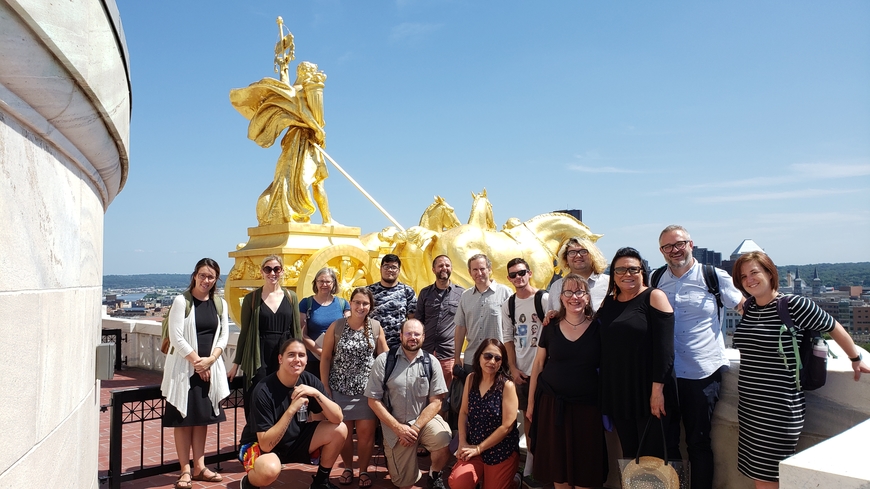Teaching About Genocide: Causes, Cases & Challenges
The Center’s 2021 Summer Educator Institute, Teaching About Genocide: Causes, Cases & Challenges, will give participants the opportunity to learn from faculty and emerging scholars from the University of Minnesota and to connect with fellow educators from across the country. Through a combination of asynchronous and synchronous activities, lessons, and conversations, the 2021 Institute aims to provide a deeper and more nuanced understanding of the concept of genocide.
Over the course of four weeks, the 2021 Institute will begin with a discussion on the history of the term genocide exploring the benefits and limitations of the legal and other definitions of this crime. In subsequent modules, we will explore commonly-taught case studies: the Armenian Genocide, the Holocaust, and the Rwandan Genocide. Each module will include pedagogical approaches to bring meaningful lessons about genocide into K12 classrooms. In so doing, the institute will also illustrate new, more inclusive approaches to teaching about Genocide, and highlight how history, identity, and politics shape our understanding of these events.
Institute Structure
The Institute is organized as a series of four-week-long modules. Each module will introduce new concepts and themes and build upon previous units.
Participants should expect to spend approximately five hours a week on coursework (readings, recorded lectures, and other media) and be willing to participate in asynchronous discussions and an hour-long weekly synchronous group discussion on Fridays.
Registrants are expected to participate in all four weeks of the Institute.
Participants may receive up to 20 CEUs.
Registration Period
Registration is open until May 31st and is capped at 25 participants.
There is no cost to participate.
Instructor Biographies
Alejandro Baer is the Stephen C. Feinstein Chair and Director of the Center for Holocaust and Genocide Studies and Associate Professor in the Department of Sociology at the University of Minnesota. Alejandro Baer has authored numerous books and articles addressing issues of genocide, survivor testimony, collective memory, and antisemitism, with a particular focus on Germany, Spain, and the Spanish-speaking world. He has been with the Center since 2012.
Jillian LaBranche is a PhD Candidate in Sociology at the University of Minnesota. Her research interests broadly include violence, knowledge, collective memory, and education. Her research seeks to understand how societies that recently experienced large-scale political violence teach about their country’s violent legacies to the next generation. This summer, Jillian will begin her fieldwork in Rwanda and Sierra Leone.
Facilitator Biographies
George Dalbo is a PhD Candidate in Curriculum and Instruction at the University of Minnesota. His dissertation examines the role of policy on genocide education in the classroom. Prior to his graduate work, George was a social studies teacher in several schools across the Twin Cities. He is currently working on his dissertation while teaching in rural Wisconsin.
Meyer Weinshel is the Education Coordinator for the Center for Holocaust & Genocide Studies and a PhD Candidate in Germanic Studies. In addition, Meyer is a lecturer in Yiddish Studies at The Ohio State University and has been active in Yiddish pedagogy and revitalization efforts across the country.
